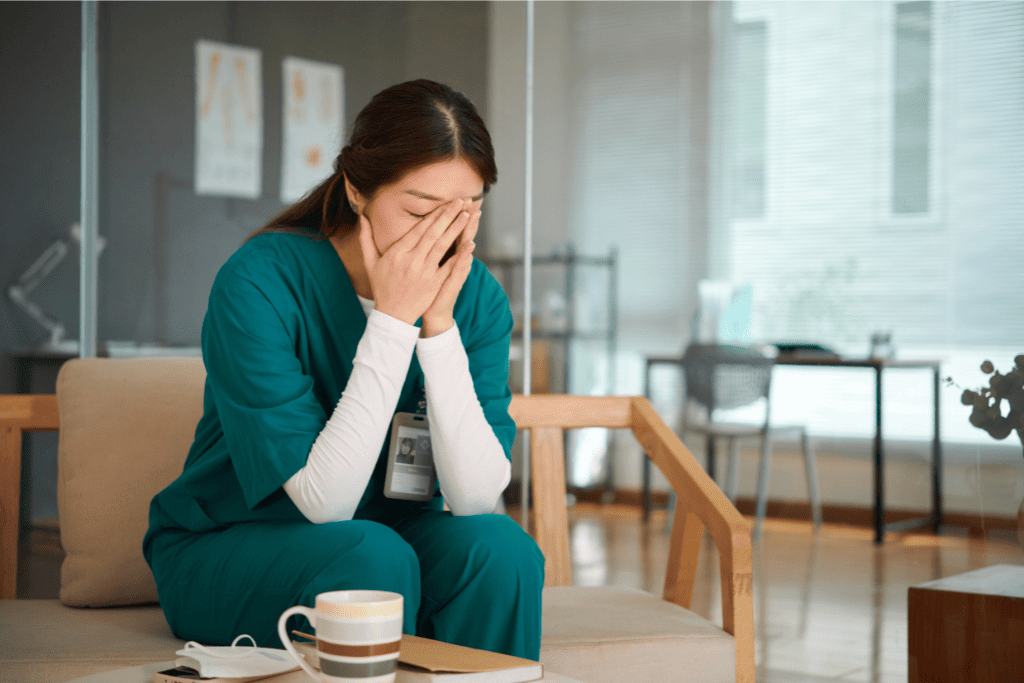Common Mental Health Conditions in Adults – Marc A. Heiser, MD, PhD
Mental health is vital to overall well-being. Learn about common conditions, treatment options, and how expert care from Dr. Heiser in Los Angeles can guide you toward healing and support.
Mental health is vital to overall well-being. Learn about common conditions, treatment options, and how expert care from Dr. Heiser in Los Angeles can guide you toward healing and support.
.png)
As humans, our mental health is just as integral to our overall well-being as our physical health, acting like a pillar that supports us as we navigate life's complexities, forge meaningful connections, and pursue our passions.
And yet, despite its undeniable (and scientifically well-documented)importance, countless adults still grapple silently with mental health conditions, often feeling isolated, misunderstood, or uncertain where to turn.
Here’s a closer look at common mental health conditions affecting adults today, and how they can be treated effectively. Read on as we peel back layers of stigma, illuminate pathways to healing, and, most importantly, encourage anyone who needs it to reach out for the support they deserve.
Why Mental Health Awareness Matters
Mental health issues are not rare occurrences; they are widespread, touching millions of lives every year. In fact, nearly one in five US adults lives with a mental illness, according to the National Institute of Mental Health.
That's a staggering number, indicative of the fact that these challenges are a shared human experience, not an anomaly.
When left unaddressed, mental health conditions can cast a long shadow, affecting everything from our most intimate relationships and professional lives to our overall quality of life and sense of purpose.
The good news is that the vast majority of these conditions are manageable, even highly treatable, with the right support and a personalized treatment plan. Just as we wouldn't ignore a persistent cough or a broken bone, we shouldn't overlook the signals our minds send us when they need care.
Most Common Mental Health Conditions in Adults
1. Depression
More than just feeling sad, depression is a persistent mood disorder that can profoundly affect how you think, feel, and handle daily activities.
● Symptoms: Pervasive sense of sadness or emptiness, marked loss of interest or pleasure in activities once enjoyed, significant fatigue or loss of energy, changes in sleep patterns, changes in appetite or weight, feelings of worthlessness or excessive guilt, difficulty concentrating, and, in severe cases, thoughts of self-harm or suicide.
● Risk Factors: A complex interplay of genetics, past trauma, chronic stress, certain medical conditions, and even seasonal changes can contribute to depression.
2. Anxiety Disorders
Anxiety is a natural human emotion, but when it becomes excessive, persistent, and interferes with daily life, it maybe an anxiety disorder.
● Types:
Generalized Anxiety Disorder (GAD)- Characterized by chronic, excessive worry about everyday events and activities, often without a specific trigger.
Panic Disorder - Involves recurrent, unexpected panic attacks, aka sudden periods of intense fear with physical symptoms like racing heart, shortness of breath, dizziness, and a feeling of losing control.
Social Anxiety Disorder - Intense fear of social situations, leading to avoidance and significant distress in interactions.
● Symptoms: Beyond excessive worry, physical symptoms can include restlessness, feeling on edge, muscle tension, rapid heartbeat, sweating, and avoidance behaviors.
3. Bipolar Disorder
This condition involves dramatic shifts in mood, energy, activity levels, and concentration, moving between episodes of depression and mania or hypomania. Without proper management, bipolar disorder can significantly disrupt daily functioning, relationships, and career.
● Symptoms: Depressive episodes that mirror the symptoms of major depression; manic episodes characterized by an abnormally elevated or irritable mood, increased energy, decreased need for sleep, racing thoughts, impulsive or risky behaviors, and sometimes grandiosity. Hypomania is a less severe form of mania.
4. Post-Traumatic Stress Disorder (PTSD)
PTSD can develop in people who have experienced or witnessed a terrifying event, have been the victims of abuse, or have endured trauma. It's important to recognize that PTSD is not limited to military service; it can result from any deeply distressing experience, such as accidents, natural disasters, or violent crime.
● Symptoms: Intrusive thoughts, flashbacks, nightmares, avoidance of reminders of the trauma, negative changes in thoughts and mood, and hyperarousal (being easily startled, hypervigilance, difficulty sleeping).
5. Obsessive-Compulsive Disorder (OCD)
OCD is a pattern of unwanted, intrusive thoughts and fears (obsessions)that lead to repetitive behaviors (compulsions).
● Symptoms: Common obsessions include fears of contamination, aggressive impulses, or a need for symmetry. Compulsions are repetitive behaviors or mental acts performed to reduce anxiety or prevent a dreaded event, such as excessive handwashing, checking, or ordering. These thoughts and behaviors are time-consuming and significantly interfere with daily life.
6. Substance Use Disorders
These disorders involve the problematic use of alcohol, illicit drugs, or prescription medications, leading to significant impairment or distress. Substance use disorders often co-occur with other mental health conditions, with substances used to self-medicate underlying anxiety or depression, creating a complex cycle.
7. Schizophrenia & Other Psychotic Disorders
These are categorized as severe mental disorders that affect how a person thinks, feels, and behaves. They are less common than other conditions but are serious and require comprehensive, ongoing care.
● Symptoms: Hallucinations, delusions (firmly held false beliefs), disorganized thinking and speech, and a lack of motivation or emotional expression.
How These Conditions Are Treated
Psychotherapy (Talk Therapy)
Often the first line of treatment, psychotherapy involves talking with a trained mental health professional. Therapy helps patients gain insight into their thoughts, feelings, and behaviors, developing healthier coping mechanisms and problem-solving skills.
There are various types of effective psychotherapy, the most common of which is Cognitive Behavioral Therapy (CBT).This process helps patients identify and change unhelpful thinking patterns and behaviors. It's highly effective for depression, anxiety disorders, and OCD.
Dialectical Behavior Therapy (DBT),another type of psychotherapy that’s especially helpful for emotional dysregulation, focuses on teaching skills for managing emotions, coping with distress, and improving relationships.
And finally, interpersonal therapy focuses on improving interpersonal relationships and social functioning to reduce symptoms.
Medication
Psychiatric medications can help with managing symptoms, especially for moderate to severe conditions. Different types include antidepressants, mood stabilizers (for bipolar disorder), anti-anxiety medications, and antipsychotics, all of which are prescribed based on the specific condition and individual response.
Medication is often most effective when combined with therapy, as it can help stabilize mood or reduce anxiety to a point where therapy becomes more accessible and impactful.
Lifestyle Changes & Self-Care
These are powerful complementary tools that support overall mental well-being, like regular physical exercise, consistent and healthy sleep patterns, a balanced and nutritious diet, mindfulness practices, and stress management techniques.
Support Groups & Peer Support
Connecting with others who share similar experiences can be incredibly validating and empowering. Support groups, whether in-person or online, reduce feelings of isolation, provide a safe space to share struggles and successes, and offer practical advice and encouragement from those who truly understand.
Emerging & Alternative Treatments
The field of mental health treatment is constantly evolving, with new and innovative approaches emerging, including ketamine-assisted therapy, transcranial magnetic stimulation (TMS), and other innovative approaches that are becoming more accessible for individuals who haven't responded to traditional treatments.
Crisis Intervention
When immediate safety is a concern, such as thoughts of self-harm or suicide, crisis intervention is paramount. Resources include national hotlines, local emergency services, and, in some cases, hospitalization to provide a safe and supportive environment.
When to Seek Help
Consider seeking professional help if:
● Symptoms persist for weeks or months and do not improve despite your own efforts.
● Your mental health challenges begin to interfere significantly with daily functioning, relationships, performance at work or school, or care for yourself.
● You experience thoughts of self-harm or suicide. This is an emergency , and you should seek immediate help.
● You feel overwhelmed, unable to cope, or that your quality of life is severely diminished.
Breaking the Stigma
Mental health disorders are pervasive across all genders and socioeconomic background, and they are highly treatable.
Seeking help is not a sign of weakness; it is, in fact, a profound act of strength and self-care. Just as you would seek medical attention for a physical issue like a broken bone, reaching out for mental health support is a responsible and courageous decision.
By talking openly about these challenges ,we contribute to breaking down the stigma that too often prevents people who are suffering from getting the care they need.
Effective, personalized treatments and robust support systems can help restore balance, foster resilience, and lead to a life of well-being.
If you or someone you know is struggling, remember that you are not alone. Reaching out to a healthcare professional like a licensed psychiatrist, is the first step toward guidance, healing, and a path to a healthier, more fulfilling life.
For expert, compassionate care in Los Angeles for mental health conditions affecting adults, teens, and children, contact Dr. Heiser, MD, PhD today to schedule an appointment.



.jpg)